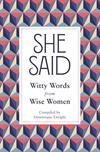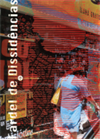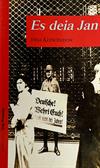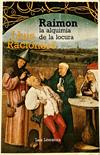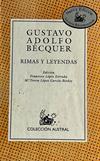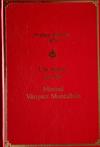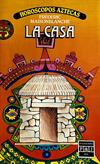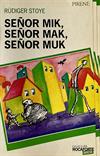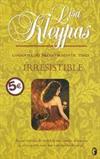
Things Fall Apart: A Novel
7 journalers for this copy...
One of those rare novels which enables the reader to understand a culture from inside.
Tabby-Cat-Owner claimed this book on the Book Relay. I'll
mail it out tomorrow.
Tabby-Cat-Owner claimed this book on the Book Relay. I'll
mail it out tomorrow.
received in the mail from Rannie of Duluth, Georgia as part of a book relay on bookrelay.com.
Thank you, rannie.
Thank you, rannie.
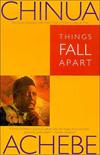 Beautifully written in a simple sytle that reminds me of folklore. This story is not only a story of one man, Okwonko who is trying his hardest to be a successful leader of his clan. It is also the story of his clan and their life before missionaries and white man's government changed everything. The book also portrays the devestating effects of white man's government on the clan system.
Beautifully written in a simple sytle that reminds me of folklore. This story is not only a story of one man, Okwonko who is trying his hardest to be a successful leader of his clan. It is also the story of his clan and their life before missionaries and white man's government changed everything. The book also portrays the devestating effects of white man's government on the clan system.
Released 15 yrs ago (11/25/2008 UTC) at
WILD RELEASE NOTES:
Journal Entry 5 by CandyDarling from Helsinki, Uusimaa / Nyland Finland on Wednesday, December 3, 2008
Wow, that was really fast, the book is already here! Thank you tabby-cat-owner for sending it. :) I intend to read this book for two challenges: Writers of Color 50 Book Challenge and 1001 books you must read before you die.
From Wikipedia:
The novel follows the life of Okonkwo, an Igbo ("Ibo" in the novel) leader and local wrestling champion in the fictional Nigerian village of Umuofia. The work is split into three parts, the first describing his family and personal history, the customs and society of the Igbo, and the second and third sections introduce the influence of British colonialism and Christian missionaries on the Igbo community.
Amazon.com Review
One of Chinua Achebe's many achievements in his acclaimed first novel, Things Fall Apart, is his relentlessly unsentimental rendering of Nigerian tribal life before and after the coming of colonialism. First published in 1958, just two years before Nigeria declared independence from Great Britain, the book eschews the obvious temptation of depicting pre-colonial life as a kind of Eden. Instead, Achebe sketches a world in which violence, war, and suffering exist, but are balanced by a strong sense of tradition, ritual, and social coherence. His Ibo protagonist, Okonkwo, is a self-made man. The son of a charming ne'er-do-well, he has worked all his life to overcome his father's weakness and has arrived, finally, at great prosperity and even greater reputation among his fellows in the village of Umuofia. Okonkwo is a champion wrestler, a prosperous farmer, husband to three wives and father to several children. He is also a man who exhibits flaws well-known in Greek tragedy:
Okonkwo ruled his household with a heavy hand. His wives, especially the youngest, lived in perpetual fear of his fiery temper, and so did his little children. Perhaps down in his heart Okonkwo was not a cruel man. But his whole life was dominated by fear, the fear of failure and of weakness. It was deeper and more intimate than the fear of evil and capricious gods and of magic, the fear of the forest, and of the forces of nature, malevolent, red in tooth and claw. Okonkwo's fear was greater than these. It was not external but lay deep within himself. It was the fear of himself, lest he should be found to resemble his father.
And yet Achebe manages to make this cruel man deeply sympathetic. He is fond of his eldest daughter, and also of Ikemefuna, a young boy sent from another village as compensation for the wrongful death of a young woman from Umuofia. He even begins to feel pride in his eldest son, in whom he has too often seen his own father. Unfortunately, a series of tragic events tests the mettle of this strong man, and it is his fear of weakness that ultimately undoes him.
Achebe does not introduce the theme of colonialism until the last 50 pages or so. By then, Okonkwo has lost everything and been driven into exile. And yet, within the traditions of his culture, he still has hope of redemption. The arrival of missionaries in Umuofia, however, followed by representatives of the colonial government, completely disrupts Ibo culture, and in the chasm between old ways and new, Okonkwo is lost forever. Deceptively simple in its prose, Things Fall Apart packs a powerful punch as Achebe holds up the ruin of one proud man to stand for the destruction of an entire culture. --Alix Wilber
From Wikipedia:
The novel follows the life of Okonkwo, an Igbo ("Ibo" in the novel) leader and local wrestling champion in the fictional Nigerian village of Umuofia. The work is split into three parts, the first describing his family and personal history, the customs and society of the Igbo, and the second and third sections introduce the influence of British colonialism and Christian missionaries on the Igbo community.
Amazon.com Review
One of Chinua Achebe's many achievements in his acclaimed first novel, Things Fall Apart, is his relentlessly unsentimental rendering of Nigerian tribal life before and after the coming of colonialism. First published in 1958, just two years before Nigeria declared independence from Great Britain, the book eschews the obvious temptation of depicting pre-colonial life as a kind of Eden. Instead, Achebe sketches a world in which violence, war, and suffering exist, but are balanced by a strong sense of tradition, ritual, and social coherence. His Ibo protagonist, Okonkwo, is a self-made man. The son of a charming ne'er-do-well, he has worked all his life to overcome his father's weakness and has arrived, finally, at great prosperity and even greater reputation among his fellows in the village of Umuofia. Okonkwo is a champion wrestler, a prosperous farmer, husband to three wives and father to several children. He is also a man who exhibits flaws well-known in Greek tragedy:
Okonkwo ruled his household with a heavy hand. His wives, especially the youngest, lived in perpetual fear of his fiery temper, and so did his little children. Perhaps down in his heart Okonkwo was not a cruel man. But his whole life was dominated by fear, the fear of failure and of weakness. It was deeper and more intimate than the fear of evil and capricious gods and of magic, the fear of the forest, and of the forces of nature, malevolent, red in tooth and claw. Okonkwo's fear was greater than these. It was not external but lay deep within himself. It was the fear of himself, lest he should be found to resemble his father.
And yet Achebe manages to make this cruel man deeply sympathetic. He is fond of his eldest daughter, and also of Ikemefuna, a young boy sent from another village as compensation for the wrongful death of a young woman from Umuofia. He even begins to feel pride in his eldest son, in whom he has too often seen his own father. Unfortunately, a series of tragic events tests the mettle of this strong man, and it is his fear of weakness that ultimately undoes him.
Achebe does not introduce the theme of colonialism until the last 50 pages or so. By then, Okonkwo has lost everything and been driven into exile. And yet, within the traditions of his culture, he still has hope of redemption. The arrival of missionaries in Umuofia, however, followed by representatives of the colonial government, completely disrupts Ibo culture, and in the chasm between old ways and new, Okonkwo is lost forever. Deceptively simple in its prose, Things Fall Apart packs a powerful punch as Achebe holds up the ruin of one proud man to stand for the destruction of an entire culture. --Alix Wilber
Chinua Achebe is a talented writer, and I was mesmerised by his prose. Yet I almost gave up on this book in the beginning. I assume we are supposed to feel sympathy for the main character, Okonkwo, because he is consumed by a fear of weakness, but I felt nothing but contempt towards this violent man who abused his wives and children. I disagree with the Amazon official reviewer, who writes that "Achebe manages to make this cruel man deeply sympathetic".
I'm glad I continued reading, because as the book progresses the focus shifts away from Okonkwo and we get to know more about his wives and children and the other villagers. I found the 1890's Igbo culture interesting and Achebe did a good job of weaving many different Igbo traditions into his story. The 2nd and 3rd parts of the book deal with the missionaries coming to live in Igbo villages and disrupting the traditional way of life. The title of the novel refers to everything falling apart for Okonkwo because the old way of life which made him prosperous is destroyed. In the end I was finally able to feel empathy for him.
Chinua Achebe is often called the grandfather of African literature. Next I'm going to read Efuru by Flora Nwapa, a Nigerian/Igbo author who has been called the grandmother of African literature. :) Flora Nwapa was criticized for focusing on women's lives in her novel (because the critics thought she should focus on the lives of men), so it should be interesting to read that after reading Things Fall Apart, which I feel would have benefited from a little less focus on men... For more on the subject, read this.
I'm glad I continued reading, because as the book progresses the focus shifts away from Okonkwo and we get to know more about his wives and children and the other villagers. I found the 1890's Igbo culture interesting and Achebe did a good job of weaving many different Igbo traditions into his story. The 2nd and 3rd parts of the book deal with the missionaries coming to live in Igbo villages and disrupting the traditional way of life. The title of the novel refers to everything falling apart for Okonkwo because the old way of life which made him prosperous is destroyed. In the end I was finally able to feel empathy for him.
Chinua Achebe is often called the grandfather of African literature. Next I'm going to read Efuru by Flora Nwapa, a Nigerian/Igbo author who has been called the grandmother of African literature. :) Flora Nwapa was criticized for focusing on women's lives in her novel (because the critics thought she should focus on the lives of men), so it should be interesting to read that after reading Things Fall Apart, which I feel would have benefited from a little less focus on men... For more on the subject, read this.
Sending the book to Piiku. Happy reading!
Journal Entry 8 by  Piiku
Piiku at Parainen, Varsinais-Suomi / Egentliga Finland Finland on Monday, March 23, 2015
at Parainen, Varsinais-Suomi / Egentliga Finland Finland on Monday, March 23, 2015
 Piiku
Piiku at Parainen, Varsinais-Suomi / Egentliga Finland Finland on Monday, March 23, 2015
at Parainen, Varsinais-Suomi / Egentliga Finland Finland on Monday, March 23, 2015
The book is here, thank you CandyDarling!
Journal Entry 9 by  Piiku
Piiku at Parainen, Varsinais-Suomi / Egentliga Finland Finland on Monday, February 19, 2018
at Parainen, Varsinais-Suomi / Egentliga Finland Finland on Monday, February 19, 2018
 Piiku
Piiku at Parainen, Varsinais-Suomi / Egentliga Finland Finland on Monday, February 19, 2018
at Parainen, Varsinais-Suomi / Egentliga Finland Finland on Monday, February 19, 2018
It seemed like a simple story, but the themes were actually quite complex. I think CandyDarling has said it all - or at least I couldn't say it better.
Sending along as a wishlist surprise.
Sending along as a wishlist surprise.
Journal Entry 10 by LiskoMiettinen at Jyväskylä, Keski-Suomi / Mellersta Finland Finland on Monday, February 26, 2018
Thanks from the book. Hope I have time to read one day.
Journal Entry 11 by LiskoMiettinen at Jyväskylä, Keski-Suomi / Mellersta Finland Finland on Friday, March 2, 2018
Give me more books from NIGERIA! :)
I so so so like this. Maybe I read this one day again with my own language. Now I don't quite get some parts but still I enjoy this very much. Thank you all for giving this to me so I can read this.
I so so so like this. Maybe I read this one day again with my own language. Now I don't quite get some parts but still I enjoy this very much. Thank you all for giving this to me so I can read this.
Journal Entry 12 by aava at Jyväskylä, Keski-Suomi / Mellersta Finland Finland on Saturday, March 3, 2018
The cover looks interesting. Sometimes that's just enough for me to pick up a book. Thankjs LM.
I didn't realise that this book had travelled to our BC meet-up in Tampere, Finland, all the way from Georgia, USA! I have had this book on my TBR list for quite some time because there are not that many classics written by African authors. Currently I am reading Half of a Yellow Sun by Adichie, so it might be interesting to compare these two.

